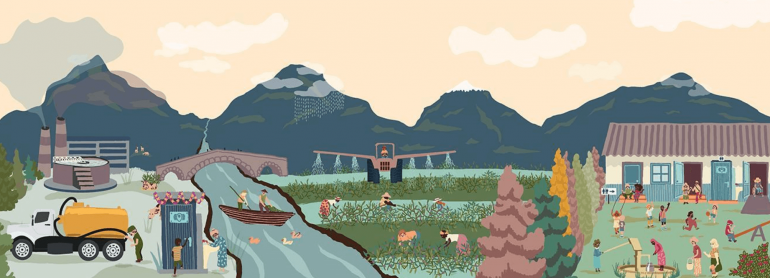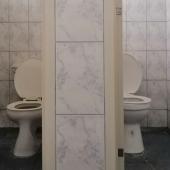3.6 billion People Don't Have It. UN World Toilet Day on November 19

United Nations observes World Toilet Day (WTD) on November 19 to inspire action towards tackling the global sanitation crisis. Worldwide, 4.2 billion people live without "safely managed sanitation." Around 673 million people practice open defecation.
Sustainable Development Goal 6 aims to "ensure availability and sustainable management of water and sanitation for all." In particular, target 6.2 is to "end open defecation and provide access to sanitation and hygiene."
When the Sustainable Development Goals Report 2020 was published, United Nations Secretary-General António Guterres said, "Today, Sustainable Development Goal 6 is badly off track" and it "is hindering progress on the 2030 Agenda, the realization of human rights and the achievement of peace and security around the world."
Who cares about toilets? 3.6 billion people do. Because they don't have one that works properly. That is the starting point of the campaign for World Toilet Day 2021. The observance raises awareness that 3.6 billion people are living without access to safely managed sanitation. When some people in a community do not have safe toilets, everyone's health is threatened. Poor sanitation contaminates drinking-water sources, rivers, beaches and food crops, spreading deadly diseases among the wider population.
The theme for 2021 is 'valuing toilets.' World Toilet Day is about tackling the global sanitation crisis and achieving Sustainable Development Goal 6: water and sanitation for all by 2030. Ahead of the day, UN-Water launches a global social media campaign around #WorldToiletDay.
On the other hand, the advantages of investing in an adequate sanitation system are immense. For instance, every $1 invested in basic sanitation returns up to $5 in saved medical costs and increased productivity, and jobs are created along the entire service chain. For women and girls, toilets at home, school, and work help them fulfill their potential and play their full role in society, especially during menstruation and pregnancy.
The solution is to tackle the global sanitation crisis and achieve Sustainable Development Goal 6: water and sanitation for all by 2030.
Even though the UN recognizes sanitation as a human right, we urgently need massive investment and innovation to quadruple progress along the 'sanitation chain,' from toilets to the transport, collection and treatment of human waste.
As part of a human rights-based approach, governments must listen to the people left behind without access to toilets and allocate specific funding to include them in planning and decision-making processes.
Radio Veritas Asia (RVA), a media platform of the Catholic Church, aims to share Christ. RVA started in 1969 as a continental Catholic radio station to serve Asian countries in their respective local language, thus earning the tag “the Voice of Asian Christianity.” Responding to the emerging context, RVA embraced media platforms to connect with the global Asian audience via its 21 language websites and various social media platforms.












